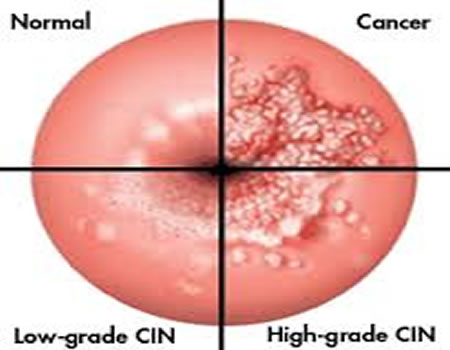A clinical virologist, Dr Adeola Fowotade, has said that it is a common misconception that abstinence from sex is enough to protect individuals from developing cervical cancer from contracting the human papillomavirus virus (HPV).
Dr Fowotade, who spoke at the scientific conference 2024 of the Annual General Meeting of the Nigerian Medical Association, Oyo State branch, in Ibadan with the theme “Vaccines: The Facts and the Myths,” said the route of transmission for HPV is not through sex.
She argues that the belief that avoiding sexual activity is essential for HPV protection rather than administering the vaccine is incorrect.
Our current understanding is that HPV is only transmitted through sexual contact, but there’s more. HPV is a virus that is found everywhere; it’s something that you can even pick up with your fingers.

“It’s something that even the mother can transmit to the child, and so just saying do not have sex by itself does not protect a child from having contact with this virus. The best way to be able to protect them is by vaccinating them.”
Dr Fowotade stated that the human papillomavirus vaccination is meant to prevent infection by the virus, while screening is looking at the cervix to see whether there are psychological changes induced by the presence of the virus. These are different levels of prevention.
She, however, listed 13 other misconceptions about HPV vaccination among health care providers, including some of them also saying, “It causes serious side effects.” “It can lead to infertility,” “Abstinence from sex can solve the problem,” “Why do we need the vaccine when we have the screening method?” and “It promotes sexual promiscuity.”
“The HPV vaccine is not new. The HPV vaccine has been in existence for more than seven years. It’s just coming into Nigeria last year. Countries like Uganda have success stories that they have shared about people who have been vaccinated with the human papillomavirus vaccine and have gone on to have children even way after that.

“Some said that the vaccine covers about two of the high-risk HPV types. But we have vaccines now that cover four genotypes of HPV. We have another that covers nine genotypes of HPV. But the main genotypes that we are worried about are the HPV 16 and HPV 18, because they account for 70% of the cases of cervical cancer that are being reported.”
The Dean-Elect, Faculty of Public Health, University of Ibadan, Professor Magbagbeola Dairo, declared that health workers play a prominent role in vaccine hesitancy, adding that it is a tragedy and irony when doctors don’t believe in vaccines.
He said that vaccines are safe, effective, and have the morbidity and mortality from common infectious diseases in Nigeria and urged Nigerians to take advantage of available vaccines, especially the HPV vaccine for girls.
Professor Dairo declared that vaccination of children under two years in Nigeria is mandatory, and parents who fail to do so are liable to pay a fine or imprisonment under the Child Rights Act in Nigeria, including Oyo.
He advocated for a vaccination policy for access to government-provided benefits like driver’s licenses and entrance into higher institutions.
Also, the Oyo NMA Acting Chairman, Dr Happy Adedapo, showed concerns over the number of health practitioners resisting the use of vaccines despite being aware that the vaccines have saved lives in the past.
“It’s worrisome that even health workers are now joining the bandwagon of people who have misconceptions about vaccines; that’s what informed the choice of our theme. We need to educate ourselves and give out the appropriate information for society.
“Vaccines are safe. We want people to embrace vaccination. People should put their trust in the science behind vaccination. With the advent of science, there is evidence that vaccines are good for health.
“The side effects people complain of are not caused by the vaccines themselves. They are a result of the body now adjusting to a foreign body that has been introduced. But it is the result of the body now adjusting to a foreign body that has been introduced. When you introduce the vaccine, it stimulates the body to build immunity to fight those organisms that the vaccine is targeting,” Dr Adedapo said.







